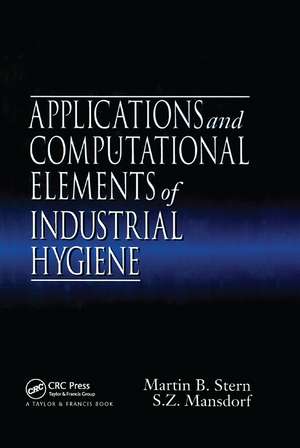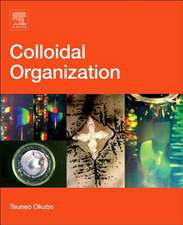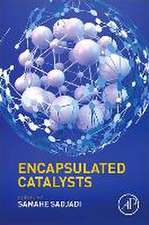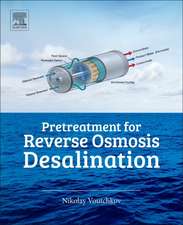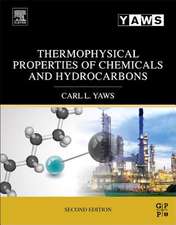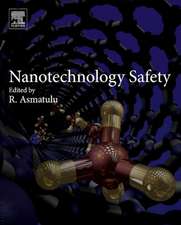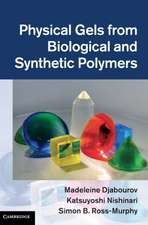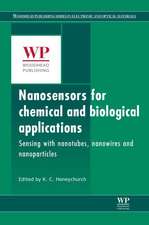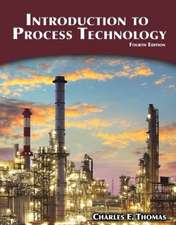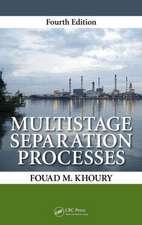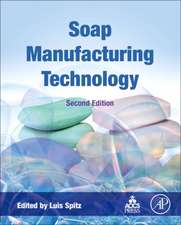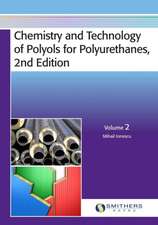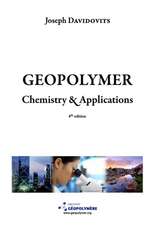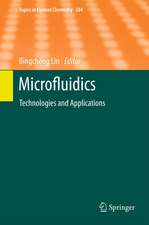Applications and Computational Elements of Industrial Hygiene.
Autor Martin B. Stern, Zack Mansdorfen Limba Engleză Paperback – 7 oct 2019
This is the first and only textbook that includes all critical computations for each concept covered. Each chapter discusses a different hazard and how to recognize, evaluate, and control it. The advantage of this approach is clear; technical issues, instrumental techniques, engineering control procedures ó relevant issues from A to Z ó are discussed for each hazard. Chapters conclude with case studies that offer critical insight into the practical aspects of the field. The book also covers emerging issues that will affect industrial hygienists in the future. The book includes real-life situations and experiences to demonstrate practical applications of concepts presented in the text.
For students, Applications and Computational Elements of Industrial Hygiene offers critical material formerly scattered across multiple sources. For seasoned industrial hygienists, this is an essential problem-solving tool and state-of-the-art reference that consolidates and updates previously scattered information.
Preț: 489.26 lei
Preț vechi: 575.60 lei
-15% Nou
Puncte Express: 734
Preț estimativ în valută:
93.62€ • 97.75$ • 77.48£
93.62€ • 97.75$ • 77.48£
Carte tipărită la comandă
Livrare economică 04-18 aprilie
Preluare comenzi: 021 569.72.76
Specificații
ISBN-13: 9780367400408
ISBN-10: 0367400405
Pagini: 826
Dimensiuni: 156 x 234 x 46 mm
Greutate: 0.45 kg
Ediția:1
Editura: CRC Press
Colecția CRC Press
ISBN-10: 0367400405
Pagini: 826
Dimensiuni: 156 x 234 x 46 mm
Greutate: 0.45 kg
Ediția:1
Editura: CRC Press
Colecția CRC Press
Public țintă
Academic and Professional Practice & DevelopmentCuprins
INTRODUCTION History of Industrial Hygiene Overview of OSHA/NIOSH Overview of ACGIH and Threshold Limit Values Discussion of ABIH and its Examination Requirements Industrial Hygiene Principles GENERAL PRINCIPLES General Chemistry Overview Key Organic Chemistry Concepts Key Physical Chemistry Concepts Mathematics Review Physics Review Chemistries of Typical Contaminants Encountered in the Workplace TOXICOLOGY General Toxicology Principles Dose-Response Relationships Mechanisms of Action Target Organs Versus Contaminant Class Biological Monitoring AIR SAMPLING General Principles (Including Sampling Strategies) Direct Reading Instrumentation Integrated Sampling Techniques Passive Diffusion Calibration Techniques Case Study ANALYTICAL CHEMISTRY Overview Gas Chromatography Atomic Absorption Emission Spectroscopy Infrared Spectroscopy High Performance Liquid Chromatography Microscopic Techniques X-Ray Diffraction Adsorption Spectrophotometry ENGINEERING CONTROLS o VENTILATION Overview/Rationale General/Dilution Ventilation Local Exhaust Ventilation Ventilation for Combustibles/Explosions Measurement Techniques Case Study NOISE Overview Physiological Response OSHA/ACGIH Standards/Permissible Noise Limits Discussion of Frequency/Intensity/Vibration/Absorption dB Scale iLoudi Industries/Equipment Monitoring Techniques Hearing Protection Administration Controls Engineering Controls Case Study IONIZING RADIATION Overview Discussion of Electromagnetic Spectrum as it Relates to Ionizing Radiation Key Concepts/Regulatory Issues Toxicological Issues Source Discussion Equipment/Industries Monitoring Techniques Control Strategies Case Study NON-IONIZING RADIATION Overview Discussion of Electromagnetic Spectrum as it Relates to Non-Ionizing Radiation Discussion of UV, IR, Visible, Microwave, ELF/EMF Key Concepts/Regulatory Issues Toxicological Issues Source Discussion Equipment/Industries Monitoring Techniques Control Strategies Case Study THERMAL HAZARDS o HOT AND COLD ENVIRONMEN
Notă biografică
Stern, Martin B.; Mansdorf, Zack
Descriere
The most complete reference available on industrial hygiene (IH), this book includes all of the critical elements - conceptual information, computation, case studies, and sample problems and exercises - in one volume. It helps students to think like industrial hygienists while offering techniques for practicing professionals. Each chapter discusses a different hazard and how to recognize, evaluate, and control it. Chapters conclude with case studies that offer insight into the practical aspects of the field. The book also covers emerging issues that will continue to affect industrial hygienists and serves as an ideal study aid for exam preparation.
